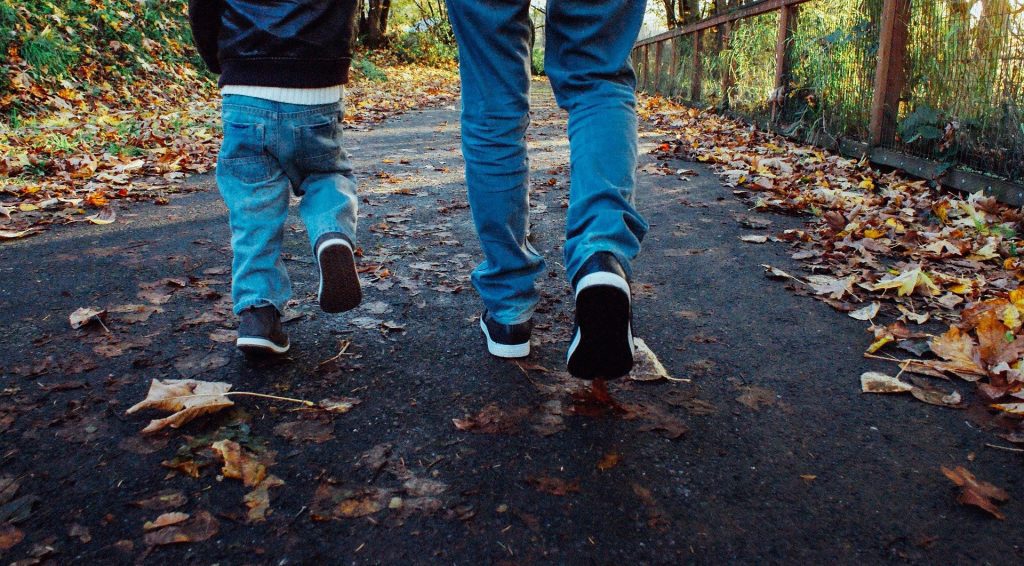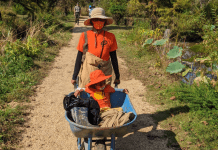
1. Adoption is complex.
The best description I’ve ever heard of adoption is that it’s a broken hallelujah. Adoption starts with loss—the loss of biological parents. Children who are removed from their first family are traumatized regardless of when the removal occurred. Before being beautiful, adoption is first and foremost a tragedy.
2. Your motivation matters
The most common motivation for a family to adopt is the desire to grow their family. This means, most often, there are very specific guidelines as to the type of child they are looking for, which is typically an infant or young child without any health or mental concerns.
But what is required in order for that to happen? A family must first be separated. A mother chooses, mostly out of desperation and unfortunate life circumstances, to not raise the child she gave birth to. Sometimes this choice is made for her, but whether it’s her choice or not, it always involves much trauma and loss.
The adoptive family then spends thousands of dollars to officially make that child a legal member of their family.
But, what would happen if our country spent more money on preventing the desperate life circumstances that would lead a mother to choose to give her child up for adoption in the first place? What if we as a society saw those desperate mothers not as merely a means to grow our family, but as human beings with dignity, worth investing our money into so that she and her child would never know the loss and trauma that comes from separation?
There are many circumstances where this is not a possibility. Then, and only then should we consider adoption. I don’t say this to dissuade you from this journey, I myself am an adoptive mom, but I do hope you move forward with the mindset that family is sacred and worth preserving at all costs. My hope for you is that 20 years after you adopt, you can look your adopted child in the eye and say with honesty, that there was no other choice for them. That you know without a shadow of a doubt that even with support, your child could never have safely stayed with their biological family.
3. Your mindset matters
I would like to challenge another common mindset about adoption. What if instead of adopting to add a child to your family, you wanted to offer your family to a child? Adoption should not be about building the perfect family. It should not be about filling an absence in your life. And it shouldn’t even be about saving a child in need. Adoption is about the child. Typically, this is not something the child will have a say in. You should not expect them to be thankful. And you should not expect that having a stable, safe, and loving environment will be enough to prevent or undo any experience of trauma your child has or will experience. When you adopt, you are committing to caring for a child that will have much to process for their entire life. It is not simply a happily ever after. Adoption is lifelong hard work, but it’s worthy work.
With that being said, how you go about adopting is VERY important.
4. Consider your options.
Do your research in choosing how you want to adopt. This is not something to take lightly. Children belong with their parents so any removal should be handled with the utmost caution and ethics. Ensure any domestic adoption agency you choose cares for birth mothers by providing counseling and support for them before they make the tragic decision to place their child for adoption. Ensure any international adoption agency works with orphanages that are reputable and is not placing children for adoption who actually have parents. Yes, this happens more than you might think.
There are THOUSANDS of children in the US that are waiting to be adopted. These children are referred to as “waiting children”. A quick search on the AdoptUSKids website showed me there are almost 200 waiting kids in DC, Maryland, and Virginia right now.
And please also consider foster care. While you CAN adopt through foster care, the point is to give biological parents a chance to course-correct and have their children return home. You could serve as an important piece in the complex puzzle of a child’s life by proving how much you love them by believing in and rooting for their parents.
5. Know your adopted child’s story and honor their heritage.
Your child had a history before they had your last name; affirm it and celebrate it. As an adoptive parent, make sure your love is not fragile. They will want to know where they came from and they will have lots of questions, but that doesn’t mean they don’t love you. To prepare for this, plan to share their story with them as soon as they are adopted. Even if they are babies, you can use pictures, talk to them about their first families, and pray for them by name together. It’s important that you get comfortable with these conversations from the beginning and establish trust with your child so they always feel safe asking you questions.

Get as much information as you can about their first family, including their faith, ethnicity, and culture (medical history is super important too!). If possible, think through ways you will stay connected with your child’s birth family or how you will honor their identity and heritage. Through adoption, your family not only grows larger, but richer too, with all the history and roots your child brings.
Transracial Adoption
If you plan to adopt transracially, there are a few things to do to ensure your child adjusts and thrives well. Representation matters. Make sure you have baby dolls or Barbies with the same skin tone as your child. Fill your shelves with books whose main characters are not always white (this is important for all of your children, no matter their color). Find healthcare workers that are of other ethnicities (doctors, dentists, therapists).
But even more so, do some self-reflection. Is there a fear of “other” that may keep your immediate community predominantly looking or thinking exactly like you or keep you from going to certain parts of towns that have other ethnicities? Seek out friendships with people who look like your child and invite them into your lives. The colors of the people sitting around your kitchen table matter a lot to your child, whether they are able to articulate it or not. How meaningful would it be for them to have an older mentor that looks just like them? You can love and serve your child so much by standing in the gap for them and making this happen.
6. Find a good therapist.
Understand that your adopted child will need therapy. It doesn’t matter when a child is adopted, unless they have help, it will be difficult for them to articulate or understand the trauma of the separation from their biological mother. It will have implications in their development, ability to have healthy attachments, self-confidence, mental health, etc. So go ahead and do some research and find a great child therapist that is trauma-informed and specializes in adoption and attachment. And find one for yourself too. Yes, this is a requirement. If you’re not willing to process your own stuff while parenting an adopted child, with all of the complexities stated above, you have no business adopting.
“The most profound thing we have to offer our children is our own healing”
– Anne Lamott
7. Listen to and learn from adult adoptees.
Adult adoptees will teach you how to parent your adopted child the way they wish they were. Be humble. When I started following accounts of adoptees, the content and stories they shared were a punch to the gut most of the time. Some speak from places of hurt and unresolved trauma, but we especially need to listen in the midst of the pain. What makes me uncomfortable causes me to grow, for the good of my daughter.
Here are a few accounts to follow on Instagram as you consider beginning an adoption journey: @therapyredeemed, @shardayrenee, @sherrieeldridgeauthor, @wreckageandwonder, @diaryofanadoptee, @torihopepeterson, @iamadopted, @living.life.adopted, @bigtoughgirl
8. Commit to and invest in ongoing trauma-informed education.
Sometimes the training provided by adoption and foster care agencies is rather dated. The research into the mental wellbeing of foster and adopted youth is ongoing. You can never know too much about your child’s developing brain or learn too many tactics to handle the inevitable meltdowns or challenging behaviors that will come. Be a life-long learner. Be adaptable and invest your time and money into books, conferences, and retreats so your family can thrive.
9. Choose your people wisely.
Surround yourself with a strong support system who are like-minded or at least willing to learn. Parenting alone requires a village, but the unique journey of adoption requires a special kind of community. Share what you are learning with your family and friends. Point them to resources that will help them understand your parenting approach and the special needs your adopted child has, including language to use, and things to say or not to say when speaking with your child about their adoption. The more healthy and safe relationships you and your child are surrounded with, the better.
10. Connect with an adoptee community.
Do everything you can to make sure that your child doesn’t feel unique and alone. Connect them with other children who are adopted or an older mentor who is adopted. You will need it too. Make friends with other adoptive parents. Find a local adoptive parent support group. Having that kind of support unique to adoptive parents will be vital to both your well-being and the well-being of your child.













